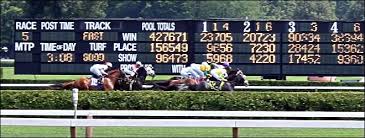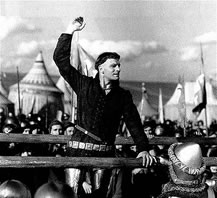To the degenerate gamblers worldwide, for they shall inherit the earth… on this next hand, I swear.

Atlanta Hawks (-2.5) at Charlotte Bobcats
Although both teams are 3 and 3, this is not an even game. Basketball-Reference’s Simple Rating System ranks Atlanta at 0.00, exactly average, while Charlotte is -5.75 27th in the league. While SRS is not incredibly predictive, it provides a nice summary of the relative schedule difficulty and performance of teams. With the much maligned Josh Smith and his shot selection now in Detroit, the Atlanta defense has suffered. Al Horford is a very good defender, and one of my favorite players in the league, but he cannot entirely compensate for Jeff Teague and Kyle Korver’s weak perimeter defense and Paul Millsap’s absent interior protection. However, the Atlanta offense has been excellent, scoring 106.9 points per 100 possessions, and Charlotte, while better than in years past, is simply not a very good team.
Memphis Grizzlies (+6.5) at Indiana Pacers
Indiana, though undefeated, has not been untouchable to start the season, facing close finishes versus the Pelicans and Nets. The excellent defense typical of these teams has only consistently appeared in Indiana, as Memphis has allowed 105.1 points per 100 possessions 18th in the league. However, so long as Memphis has Marc Gasol and Tony Allen on the roster they should capable of dominant defensive performances, especially against an Indiana offense that is prone to some very ugly spurts, scoring 102.6 points per 100 possessions, 16th in the league. Do not think that the Pacers are “due” for a loss, a basic gambler’s fallacy. Indiana is 5-2 against the spread (Memphis is only 1-5), and 6.5 quite a few points to be giving a team that just shut down the mighty Warriors offense.
San Antonio Spurs (-6.5) At Philadelphia 76ers
Although Philadelphia, with the emergence of Michael Carter-Williams, is a more talented team than expected, the Spurs, resolute in their march against time, will not halt for the upstart Sixers. San Antonio has been out of rhythm offensively, but boasts the third best defense in the league, allowing 96.7 points per 100 possessions. Kawhi Leonard and Danny Green leave San Antonio capable of defending Philadelphia’s perimeter creators, while Thaddeus Young and Spencer Hawes can do little to defend Tony Parker’s forays to the rim.
Orlando Magic (+3) at Boston Celtics
In this matchup of expected tankers, one bold team must shrug off the narrative and win. Of course, the Magic have actually done a pretty good job of this so far, beating the Clippers and destroying the Nets and Pelicans. While the Celtics have three wins as well, including a win over Orlando, they have not played at the same level. Both the Celtics offense and defense rank below Orlando’s, and, without Rajon Rondo in the mix, Orlando has a much more talented squad. Home court advantage has historically been worth around three points, meaning Vegas thinks that these teams are approximately even (or at least they think that the betting public thinks so, which may be a more accurate conclusion). Orlando, despite what single game results may show, has been a better team so far this season.
Cleveland Cavaliers (+8) at Chicago Bulls
It may have been more efficient to abandon these picks and simply say “all the road teams”. Both Cleveland and Chicago have struggled this season. Chicago should be a much better team, but has not adapted to a re-structured read-and-react offense and is not performing near its potential defensively. Cleveland, much like Chicago, has floundered on offense, as Mike Brown coached teams are wont to do, but has excelled defensively, as is also typical of teams under Mike Brown’s tutelage.
Utah Jazz (+3) versus Denver Nuggets
The first home team picked on the night, Utah, faces a team whose starting center, Javale McGee, is expected to miss an extended period of time with a stress fracture in his left leg. While Javale has not exactly excelled to start the season, anything that results in more minutes for J.J. Hickson is inherently bad. The Jazz awful start to the season may be remedied by every NBA teams favorite medicine, an opponent completely lacking in defense.
Detroit Pistons (+4.5) at Portland Trailblazers
Detroit and Portland are in similar positions. Both teams have solid young cores, along with veteran stars in Josh Smith and LaMarcus Aldridge, and are fighting for a playoff spot from the fringes of their conference. However, the Pistons and Blazers face contrasting problems. Detroit faces a spacing crisis, but should be an effective defensive team, while Portland has incredible offensive firepower and little to back it up on the other end.
Minnesota Timberwolves at Los Angeles Clippers: Off the Board
As of 12:06 Monday morning, Pinnacle Sports and Bovada Online have not released a line for this matchup. I would guess that the Clippers, at home, will be favored by around three points. Both teams offer incredible offenses, questionable defenses, and MVP candidates. This should be a very, very fun game.




